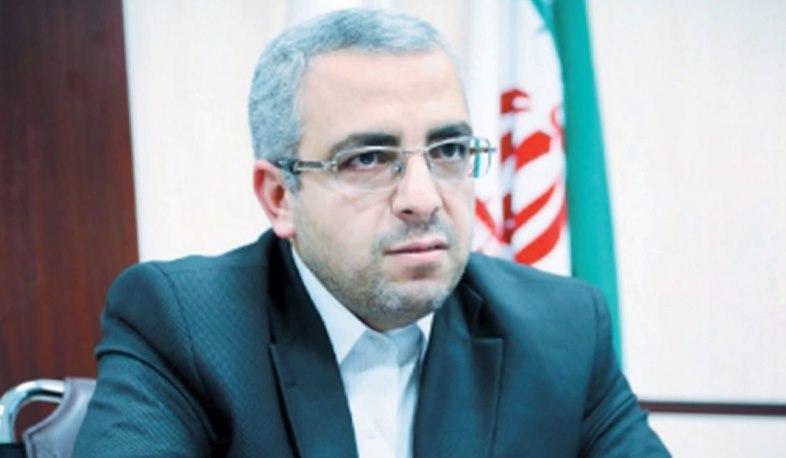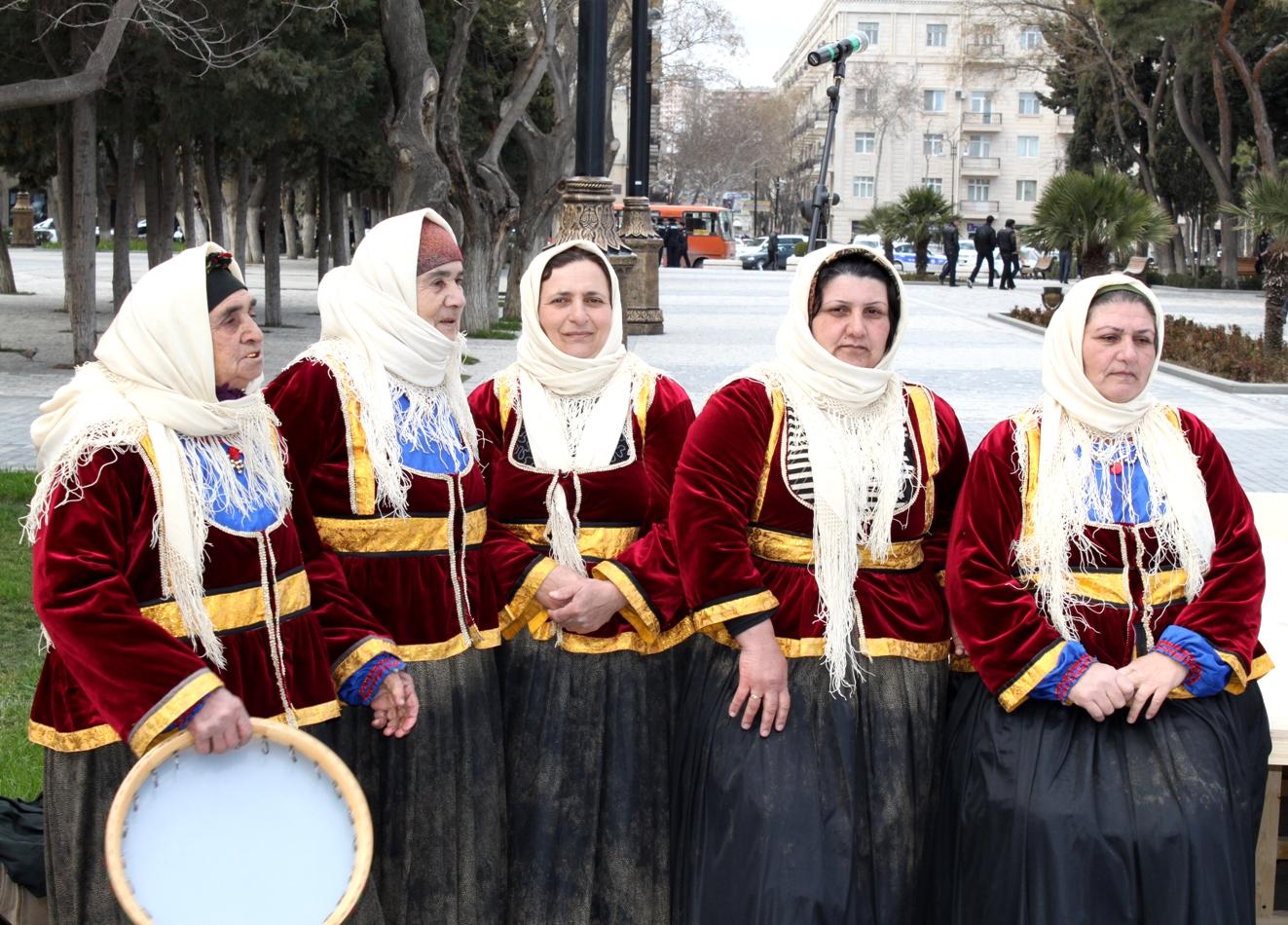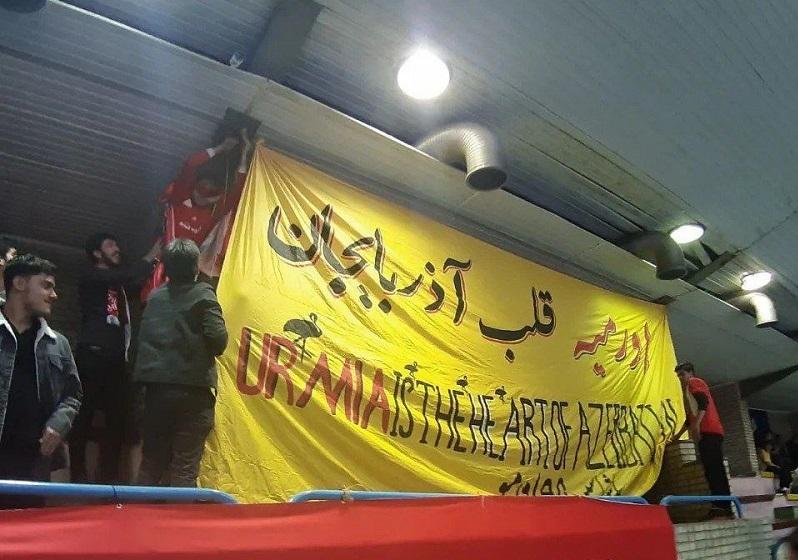Iran's Talish minority forum cover for continued domestic rights suppression Covert agenda unveiled
Iran's recent decision to host a conference on the Talish minority in Azerbaijan is indicative of its ongoing and multifaceted anti-Azerbaijani policy. By positioning itself as a purported protector of ethnic minority rights, Iran attempts to present a façade of inclusivity and support for marginalized communities. However, this gesture belies Iran's true intentions, which are to stifle any calls for rudimentary rights and autonomy among ethnic minorities within its borders, including the Talish population.
Iran's Talish conf masks internal oppression
The timing of the conference is particularly noteworthy, occurring amidst heightened tensions between Azerbaijan and Armenia, and reflecting Iran's opportunistic approach to regional geopolitics. By hosting discussions on the Talish minority, Iran seeks to drive a wedge between ethnicities in Azerbaijan and stir discord to further its interests.
Furthermore, Iran's purported support for minority rights stands in stark contrast to its suppression of dissent and opposition within its borders. The Iranian government has a long history of marginalizing and discriminating against ethnic minorities, including the Talish, Kurds, Azerbaijanis, and others. Dissent is met with harsh reprisals, and any attempts to assert cultural or political autonomy are swiftly quashed.
By holding a conference on the Talish minority in Azerbaijan, Iran attempts to deflect attention from its own egregious human rights abuses and portray itself as a champion of minority rights on the international stage. However, this cynical ploy only serves to highlight Iran's hypocrisy and underscores the need for genuine efforts to address the plight of ethnic minorities both within Iran and across the region.
Rasht hosts separatist gathering amid regional tensions
The convening of the "Talish in the Mirror of Iranian Culture and History" conference at Iran’s Rasht Islamic Azad University on March 10 raised significant concerns over Tehran's stance on separatism within Azerbaijan.
The involvement of separatists from the Talish diaspora in Europe, particularly certain Boris Talishinski, purported successor to separatist Alikram Humbatov of "northern Talishistan," along with Ahmad Kazemi, expert in international law, and Abulfazl Beheshti, a member of the Board of Directors of the EU's People's House, indicates a deliberate endeavor to advance separatist ideologies under the pretext of cultural and historical dialogue.
In a stirring declaration, Boris Talishinski expressed his profound pleasure in partaking in this consequential confluence of political and cultural discourse.
"Iran stands as the ancient homeland of the Talish people; I stand on my ancestral soil, my motherland, feeling akin to a river converging with the sea," he proclaimed to resounding applause, adding that "we share a common essence; let us ensure this essence remains unbroken".

Ahmad Kazemi, while advocating for the preservation of collective cultural heritage, underscored the enduring harm caused by divisions throughout history. His emphasis on the shared millennia-old heritage aimed to reinforce the notion of collective entitlements among communities. However, amidst this discourse, there was a glaring omission regarding the plight of numerous ethnicities within Iran. These marginalized groups have long struggled to secure basic human rights, equitable access to economic and natural resources, and meaningful political representation. By overlooking these pressing issues, Kazimi's remarks failed to acknowledge the ongoing challenges faced by minority communities striving for equality and recognition within Iran's complex social and political landscape.
By asserting that "it is only natural for brethren to harbor concern for their kin," Ahmad Kazemi overlooked the harsh realities faced by the Talish population within Iran. While highlighting the alleged concerns of Iranian Talish for their counterparts in “northern Talishistan”, Kazimi failed to acknowledge the widespread hardships, extrajudicial executions, and arbitrary arrests endured by the Talish people, alongside thousands of other innocent individuals, within Iran's borders. This omission glosses over the systematic violations of human rights and undermines the urgent need for justice and accountability within Iran's ethnic minority communities.

The presence of Yaser Karamzadeh, a professor of Iranian dialects at Yerevan State University and the conference's secretary, underscores Iran's duplicitous behavior amidst claims of fostering good neighborly relations. Karamzadeh's remarks highlight Tehran’s geopolitical plots behind the conference, indicating that such gatherings serve as more than mere cultural showcases. Instead, they shed light on Iran's strategic maneuvering and its response to regional challenges posed by perceived adversaries.
Furthermore, Karamzadeh suggested a resurgence in Iran's leadership, as evidenced by the growing regional solidarity among its diverse peoples. He emphasizes that the resonance of such conferences extends beyond governmental circles to encompass a broader societal base, signaling a pivotal shift in regional dynamics.
He further emphasized a notable shift in allegiances, highlighting that previous endeavors from Armenia, Russia, and other nations aimed to sway the allegiance of the Talish people. However, he failed to acknowledge Yerevan's purported interest in championing the rights of the Talish community. Instead, he shed light on the intricate web of connections uniting Iran, Armenia, and Russia, suggesting a concerted effort to advance the interests of the Talish people. This alignment, aimed at sowing seeds of dissent within Azerbaijan, underscores the geopolitical complexities at play in the region and the potential ramifications for regional stability. He asserted that Iran should accept its responsibility as the protector of its estranged descendants, indicating a reorientation in regional alliances and priorities.
Conf threat to Azerbaijan's stability & sovereignty
The conference has stirred controversy due to its potential ramifications on national and state interests in the Azerbaijani expert circles, shedding light on Iran's covert plans to pose nose into affairs of Azerbaijan’s ethnic minorities, particularly the Talish community, through the dissemination of radical religious ideologies and separatist sentiments.
The prominence of Boris Talishinski as a key speaker further complicates the matter. Talishinki, introduced as the "head of the emigrant government of the Talish Mugan republic" and purported successor to Alikram Humbatov, signifies a deliberate effort to legitimize separatist agendas and solidifies confidence that Tehran greenlighted the process and the dissemination of the information by IRNA underscores the gravity of the situation.
Boris Talishinki represents a multifaceted and potentially perilous initiative supported by various groups across the West, Russia, Armenia, and Iran. His intellectual sophistication and active advocacy for separatism, evident on social media platforms like Facebook, pose significant threats not only to Azerbaijan but also to regional stability. His alignment with separatist movements such as Laz, Zaza, and Kurdish further compounds the potential risks.
Of particular concern is Talishinki's deliberate omission of Iran from his discourse, focusing instead on disseminating disinformation and false accusations about Azerbaijan. This strategic alignment suggests collusion with Iran and its Revolution Guard to advance anti-Azerbaijani agendas.

The conference's right topic underscores Iran's complex strategy of using cultural and historical narratives to promote separatism among ethnic minorities. Ahmad Kazemi, known for his anti-Azerbaijani rhetoric, moderates the event, indicating possible links to Iran's Revolution Guard.
This conference represents Iran's shifting tactics in its relationship with Azerbaijan. While superficially normalizing relations, Tehran continues to undermine Baku through alternative means. The exploitation of ethnic groups like the Talish, Tat, and others under the guise of national identity reflects Iran's persistent efforts to weaken Azerbaijan's regional influence.
The timing of this conference is notable, following the defeat of Armenian separatism in Karabakh. It suggests a coordinated effort between Iran and Armenia to instigate new conflicts involving Azerbaijan. Alikram Humbatov's glorification in Yerevan further underscores the collaboration between Iran and Armenia in supporting separatist movements.

In conclusion, the conference epitomizes Iran's strategic maneuvering to undermine Azerbaijan's stability and sovereignty. Despite apparent normalization, Iran continues to pursue its anti-Azerbaijani agenda through insidious means, posing significant challenges to regional peace and security.








